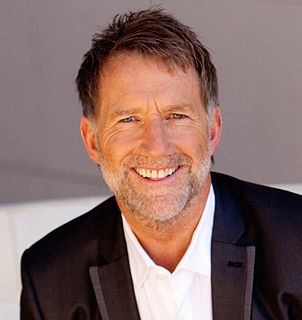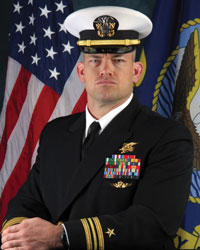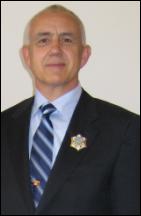A Quote by John Baldoni
Leaders instill purpose through their words and their actions. Their communications demonstrate a commitment to vision and mission, but their behaviors underscore its real importance. What a leader does is far more important than what he or she says. People want to see action and help achieve results.
Related Quotes
A leader always has one major message, and this weaves into everything he or she does. It remains the primary focus. A leader is to some degree a prophet, a person with a message. Great leader [sic] see things that others don’t. They preach it until others can see it as well. Their message supports the mission. A leader is a preacher, a person who communicates the fire of the mission. Not all preachers are leaders, but all great leaders will be preachers of one sort or another.
The first step toward creating an improved future is developing the ability to envision it. VISION will ignite the fire of passion that fuels our commitment to do WHATEVER IT TAKES to achieve excellence. Only VISION allows us to transform dreams of greatness into the reality of achievement through human action. VISION has no boundaries and knows no limits. Our VISION is what we become in life.
Teachers, who are really good create that environment where you can be very satisfied by the process of learning. If you do something and you find it a very satisfying experience then you want to do more of it. The great teachers somehow convey in their very attitude and their words and their actions and everything they do that this is an important thing you're learning. You end up wanting to do more of it and more of it and more of it. That's a real talent some people have to convey the importance of that and to reflect it back to the students.
All leaders must be good communicators. But let's be clear, communications is not the same as oratory. Let me give you an example. General George C. Marshall was an exemplary public servant and military officer. He helped mobilize our nation for the Second World War and helped lay the foundation for peace as Secretary of State. He communicated through words, but more loudly through his actions.
Followers are always watching what you do. And people do what people see! If you are a leader seeking to make your vision come alive, then there is no better way to accomplish this than by living it: Modeling your expectations, setting the example by your actions, and showing the way through leading. Your followers, who are watching, will see in you the living picture of the vision, and you will produce the energy, motivation and passion to keep it going.
Good leaders set vision, missions, and goals. Great leaders inspire every follower at every level to internalize their purpose, and to understand that their purpose goes far beyond the mere details of their job. When everyone is united in purpose, a positive purpose that serves not only the organization but also, hopefully, the world beyond it, you have a winning team.
































